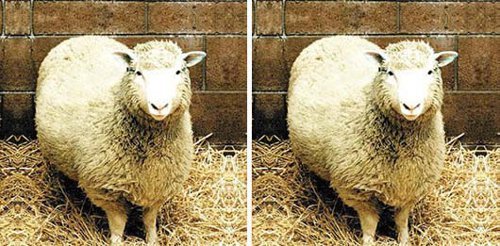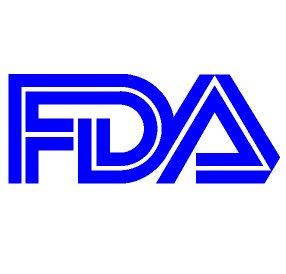 Europeans expressed their shock as they learned cloned meat hit the open market in secret. Cloning, a method of asexually reproducing a genetic copy of the animal, was all over the headlines as news of the diplomatically named “novelty meats,” came to fruition.
Europeans expressed their shock as they learned cloned meat hit the open market in secret. Cloning, a method of asexually reproducing a genetic copy of the animal, was all over the headlines as news of the diplomatically named “novelty meats,” came to fruition.
Recently farmers in Switzerland informed the public some of their cattle are second and third generation cloned cattle or offspring of cloned cattle. This special breed has been sold on to the food market, and people are eating it this very moment.
Farmers in the UK also admit to purchasing cloned embryos from the US in order to create higher dairy profits from beef and milk. Meat from cloned cows is said to hold the possibility of being healthier as only the healthy, disease-free and leaner cattle are cloned; therefore they are better for consumption. The actual percentage from sales of cloned meat is small. This practice is currently also legal, but the debate continues as to whether it is ethical.
Long-Term Effects From Eating Cloned Meat Unknown
 The US began selling the stuff first. It has been in line for cloned food since perhaps as early as 2005. The Food and Drug Administration (FDA) states that this new food technology, or novelty food, is not harmful to the body. They have reported that consuming the flesh and milk from cloned cows, swine and goats is perfectly safe.
The US began selling the stuff first. It has been in line for cloned food since perhaps as early as 2005. The Food and Drug Administration (FDA) states that this new food technology, or novelty food, is not harmful to the body. They have reported that consuming the flesh and milk from cloned cows, swine and goats is perfectly safe.
How can they be sure? There are no reports yet on the possible long-term effects. Because this practice is new, it will take many years to track whether there are adverse effects on the mind and/or body. But apparently the FDA conducted a very technical risk assessment, which is now in the hands of the Washington Post.
The experts say, “We conclude that there is no reason to expect that food from bovine clones would pose additional food safety risks compared with the same products derived from conventionally-bred cattle,” according to one of the statements recorded in the report of nearly 1,000 pages.
“There are only about 600 animal clones in the United States and most of these are breeding animals. So few clones will ever arrive at the marketplace,” stated Bruce I. Knight, Under Secretary for Marketing and Regulatory Programs at the USDA.
There are others that disagree with these experts. Emma Hockridge, Head of Policy at the Soil Association in the UK was quoted as saying, “”Cloning involves applying invasive and cruel techniques on the surrogate mothers that are used for producing the clones.” She said cloning also raised worries about the safety of meat and dairy products and the spread of diseases, “as well as concerns about the ethics of cloning.”
After the assessment was released earlier in the year, the US Department of Agriculture (USDA) strongly urged farmers to “voluntarily” keep this novelty food off the open market for now. The USDA suggested that too much controversy presently exists over this practice and there needed to be wider acceptance of the idea. Of course, it is expected that in time this practice will become the norm.
The Washington Post Suggests Cloned Foods Have Been in the Market for Years
Some people were shocked to learn that even as far back 2005, cloned foods have been circulating in the marketplace. The Washington Post reported back in 2008 that the major cattle cloning companies’ executives openly admitted that though the FDA required special tracking for safety reasons, it has not been possible to track every animal that is sold on the open market.
“Executives from the nation’s major cattle cloning companies conceded yesterday that they have not been able to keep track of how many offspring of clones have entered the food supply, despite a years-old request by the FDA to keep them off the market pending completion of the agency’s safety report” said the article.
The Post quoted Donald Coover, a bull’s semen seller, as saying that it’s a “fairy tale” to believe that cloned foods in the marketplace haven’t been around for years. Nearly enough semen from just one bull from Oklahoma was sold in 2003 to inseminate a whopping 2,000 cows, generating a hefty profit of $100,000.
Cloning Cattle to Sell on the Open Market May be Unethical
 Something just isn’t natural regarding cloning animals then eating the results. For one thing, it is an extremely expensive way to reproduce an animal.
Something just isn’t natural regarding cloning animals then eating the results. For one thing, it is an extremely expensive way to reproduce an animal.
Some experts say the practice of selling cloned foods is indeed unethical and also puts the animal’s welfare at risk. Taking samples for cloning causes the animal pain and discomfort, as well as emotional and mental trauma. The mortality rate is higher amongst cloned embryos due to cardiovascular complications, respiratory problems, and organ failure.
The overall welfare of the animals suffers — including grossly oversized heads, twisted limbs, and bloated fetuses, malformed kidneys, immune system deficiencies, and a variety of severe health problems, abnormalities, and deformities that are rarely seen otherwise.
A French member of the European Parliament, Corinne Lepage, stated, “Although no safety concerns have been identified so far with meat produced from cloned animals, this technique raises serious issues about animal welfare, reduction of biodiversity, as well as ethical concerns.” She, as well as other members of parliament are advocating a ban on the selling of cloned foods.
Religious groups have shown their intolerance of what is going on in the world of cloning regarding novelty foods as well. Activists are demanding special packaging and labeling for such meat. Because of the results of the assessment, the FDA presently will not require it.
Meanwhile in Europe, anyone wishing to sell novelty meats must first seek permission from the regulatory board. It is believed that, to date, no one actually has sought permission.
Final Thoughts
 Technology will continue to advance; no one is going to stand in the way of that. Legitimate progress should not be denied. But is this “advancement” justified for the sake of “milking” the dollar? Is it really okay to look at these cloned animals as mere products for profit? Has the world of science and technology moved ahead at such a speed that we can an no longer keep up emotionally?
Technology will continue to advance; no one is going to stand in the way of that. Legitimate progress should not be denied. But is this “advancement” justified for the sake of “milking” the dollar? Is it really okay to look at these cloned animals as mere products for profit? Has the world of science and technology moved ahead at such a speed that we can an no longer keep up emotionally?
Care needs to be taken with cloned animals, and assessments need to continue so scientists are able to see the effects cloned meats have on our systems in the long-term. Sensitivity also needs to be lent to the consumer. People should have a chance to decide if they want to purchase and eat so-called novelty foods.
Of course one way to know for sure what you’re eating is to buy organic, as by law, organic food must be clone-free.
Without a doubt, foods from cloned animals have made their way into the marketplace, and we’ll probably see growth in sales in the coming years. This issue will likely always maintain some degree of controversy, as some people will never be at ease with this practice. What do you think?